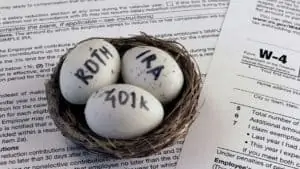In the Cutter house, Christmas is a big deal. Even as teenagers, the girls get so excited to decorate the house with Christmas knick-knacks, and put up the tree. And, of course, it’s a month of anticipation about what they’ll find under the tree on Christmas morning. It even seems like the bickering and arguing takes a small break this month, as if word of any bad behavior could get back to Santa. It always amazes me the power of a guy in a red suit, even for teenagers; it all makes for a pretty peaceful time in the Cutter house this month. And although it’s easy to get lost in the season, we also take time as a family to reflect on the past year and remember why we are celebrating Christmas in the first place. We remind ourselves that it’s not just about giving and receiving gifts, but also a time count our blessings for our family and friends, our health, our happiness and our home.
Unfortunately, this isn’t such a happy season for some. Over Thanksgiving I got talking to a buddy of mine that I have not seen in a few years. George is a couple of years older than me, from Raynham, married with three kids, and has worked for General Electric for about 24 years. General Electric (GE) announced earlier this month it was freezing pensions for 20,000 employees in an attempt to reduce its $8 billion pension deficit, and it’s also freezing supplementary pension benefits for about 700 workers. This is a major blow to George and his family, who have been counting on his pension to fund a large portion of his retirement, and he now has to dramatically re-think his retirement strategy. And instead of fully enjoying a joyous holiday season, he’s worrying instead.
For workers like George, who have stayed with a firm because of promised pension benefits, a frozen pension can be a big financial hit. Someone who is 50, for example, could reasonably expect higher earnings over the 15 years before retirement, so a pension freeze at 50 could mean a big benefit cut.
“It really damages a person in the mid to late portion of their career,” says Jean-Pierre Aubry, associate director of state and local research at the Center for Retirement Research at Boston College.
This week let’s take a look at what a pension freeze is, and what you can do if this unfortunate scenario happens to you.
Like many other companies, GE used its pension plan to attract and keep workers in the past. However, corporate pensions, in general, are rapidly disappearing. The number of corporate pension plans with 100 or more members has fallen from almost 26,000 in 1983, the peak, to about 8,400 in 2016, according to the most recent data available from the U.S. Department of Labor. That’s a drop of two-thirds in about 35 years.
Maintaining these types of plans can be costly, and in some cases, an employer may choose to terminate or freeze its pension plan. Other major companies that recently have frozen their pension plans include DuPont, UPS, IBM and L.L. Bean, according to the Pension Rights Center, a nonprofit consumer advocacy group.
So, just what does a pension freeze mean? When a pension is frozen, it remains intact, but no new contributions are allowed. Typically, a freeze applies only to defined benefit plans and can be either hard or soft. A hard freeze means that you won’t lose any of your existing benefits, but you also won’t earn any new benefits from the plan. A soft freeze typically affects only certain employees, such as new hires or those who are not yet eligible to participate in the pension plan. These individuals won’t be able to earn plan benefits at all. Current participants will still continue to accrue benefits but the amount they can earn may be reduced. A freeze is not the same as when a pension plan is terminated, in which case the plan is disbanded completely.
If you find yourself in a pension freeze situation, one of the first things you will want to do is make sure you understand what kind of freeze is taking place.
For example, with the GE pension freeze, employees won’t see any additional benefits nor have access to contribute to their plan, beginning Jan. 1, 2021. The company will, however, contribute 3% of those workers’ salaries to a 401(k) plan and provide a 50% matching contribution for up to 8% of employee contributions. The company is offering a lump-sum payment plan, for a limited time, to 100,000 former employees who have yet to start receiving their benefits.
While electing to take a lump-sum distribution from a terminated pension plan may be appealing, and in many instances highly recommended, there are some drawbacks to consider. For example, generally speaking, if you don’t roll the money over into another retirement plan within 60 days, you’ll owe income tax on the money. If you’re under age 59 1/2, you may also get hit with a 10 percent early withdrawal penalty. In some cases, an employer may transition employees to a 401(k) or other defined contribution plan after terminating or freezing a defined benefit plan. While you’ll still be able to fund your retirement savings, you assume a greater degree of risk with these plans since you’re responsible for managing your own investments.
There are other factors to consider as well. For example, if the company’s financial situation is somewhat in question, it may make sense to take the money in a lump sum rather than counting on the company to make good on their promises years from now. If you do decide to take the lump sum, consider rolling that money into an individual retirement account (IRA) to avoid any tax surprises in April. Doing so will keep the money tax-deferred until retirement, as would rolling that money into a company 401(k) plan.
And of course, plan to save more between now and retirement. Consider boosting or maxing out your 401(k) contributions, if you can, as well as stashing more into a Roth IRA if possible.
Folks, if your company’s pension plan has been frozen or terminated, it’s even more crucial now for you to take charge of your retirement savings plan with proactive measures. While you can’t control what happens with your pension, you can save more now to ensure a comfortable retirement. Just knowing your options and what to do next can provide you with greater assurance, and allow you, too, to count your blessings this holiday season.
So as always – be vigilant and stay alert, because you deserve more!
Have a great week.
Jeff Cutter, CPA/PFS is President of Cutter Financial Group, LLC, an SEC Registered Investment Advisor with offices in Falmouth, Duxbury, Mansfield & Southlake, TX. Jeff can be reached at jeff@cutterfinancialgroup.com.
This article is intended to provide general information. It is not intended to offer or deliver investment advice in any way. Information regarding investment services is provided solely to gain a better understanding of the subject of the article. Different types of investments involve varying degrees of risk. Therefore, it should not be assumed that future performance of any specific investment or investment strategy will be profitable. Market data and other cited or linked-to content in this article is based on generally-available information and is believed to be reliable. Cutter Financial does not guarantee the performance of any investment or the accuracy of the information contained in this article. Cutter Financial will provide all prospective clients with a copy of Cutter Financial’s Form ADV 2A and applicable Form ADV 2Bs. Please contact us to request a free copy via .pdf or hardcopy. Insurance instruments offered through CutterInsure, Inc.






